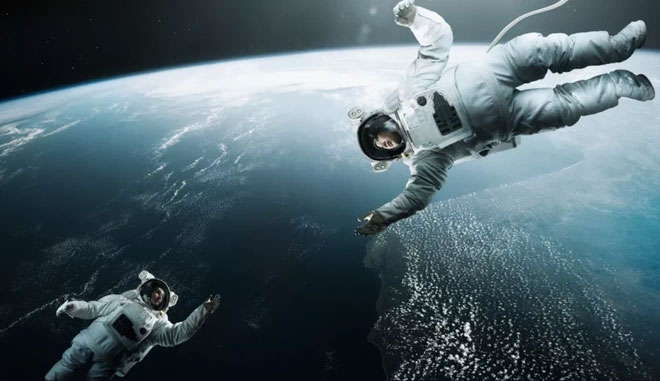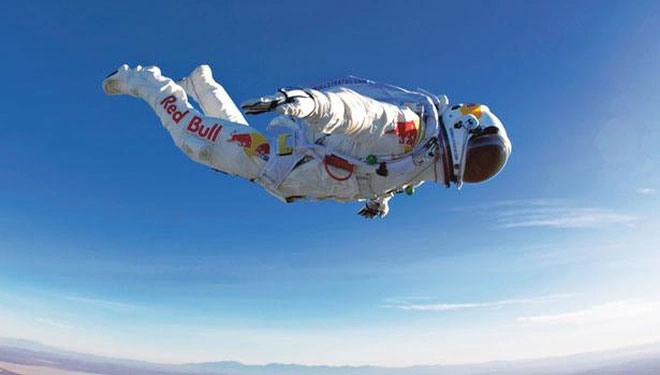Imagine you are an astronaut exploring the vastness of space on a spacecraft, but suddenly you are ejected into the void without a protective suit. What would happen?
It would not be a pleasant experience.
In Hollywood movies, this scenario is often exaggerated, suggesting that the human body would instantly explode or freeze to death without the protection of a suit or helmet.

Drifting in space is still a horrific death without protective gear.
In reality, these effects are somewhat similar but less exaggerated. Nevertheless, drifting in space is still a terrible way to die.
What Happens to the Body?
Unlike Earth, space is a vacuum (lacking air). This means there is no atmosphere and no pressure exerted by air molecules.
Thus, the first thing we would face is the inability to breathe, as there is no oxygen around. Next, our bodies would experience a series of uncomfortable sensations, as if they were “boiling.
Typically, atmospheric pressure determines the temperature at which liquids boil and turn into gas. If the external air pressure on a liquid is high, like at sea level on Earth, gas bubbles struggle to form, rise to the surface, and escape. However, since there is almost no atmospheric pressure in space, the boiling point of liquids drops significantly.
“With 60% of the human body made up of water, this is a serious problem,” said Dr. Kris Lehnhardt, a NASA space medicine physician.
Without pressure, the liquids in our bodies would begin to boil, transitioning from liquid to gas. Essentially, all body tissues containing water would start to swell, Dr. Lehnhardt explained.
The body would undergo a series of uncomfortable sensations if you were to find yourself in a vacuum environment.
According to NASA’s space travel data book, a vacuum environment would pull air out of the lungs, causing the victim to suffocate within minutes. Even after the air rushes out, the vacuum would continue to extract gas and water vapor from the body through the respiratory system.

The vacuum environment will cause the victim to suffocate within minutes.
The formation of gas bubbles in the body is known as the phenomenon of “ebullism”, which causes water molecules to evaporate, absorbing thermal energy from the body. This results in the areas near the nose and mouth becoming almost “frozen.”
According to astrophysicist Paul Sutter, temperature is a measure of the energy level at which atoms and molecules move. Therefore, in a nearly empty space, there isn’t much to move around, making it feel “cold.”
The rest of the body would also experience a similar situation as the water within evaporates and heat dissipates slowly due to radiation from the body.
For astronauts in space who find themselves in a similar situation, some may lose control of their bladder and bowel systems. Swollen muscles can cause blood flow to the heart and brain to constrict.
“No human can survive this. Death can occur in less than two minutes,” Dr. Lehnhardt stated.
“Eyewitnesses”
Some astronauts have even been “eyewitnesses” to this phenomenon and survived to tell the horrifying story that unfolded in their own bodies.
In 1966, Jim LeBlanc, an aerospace engineer at NASA, was testing the performance of prototype spacesuits in a vacuum chamber.
Suddenly, the pressurized air supply tube to his suit was severed, causing him to gradually lose consciousness.
“As I fell backward, I could feel the saliva on my tongue starting to bubble right before I passed out. That was the last thing I remember,” Jim shared in the documentary series “The Space Suit,” which aired in 2008.
The phenomenon of “ebullism” also occurs in divers who ascend too quickly from deep waters. This happens because they move from a high-pressure underwater environment to the lower pressure at the water’s surface, leaving their bodies unable to adapt in time.


















































